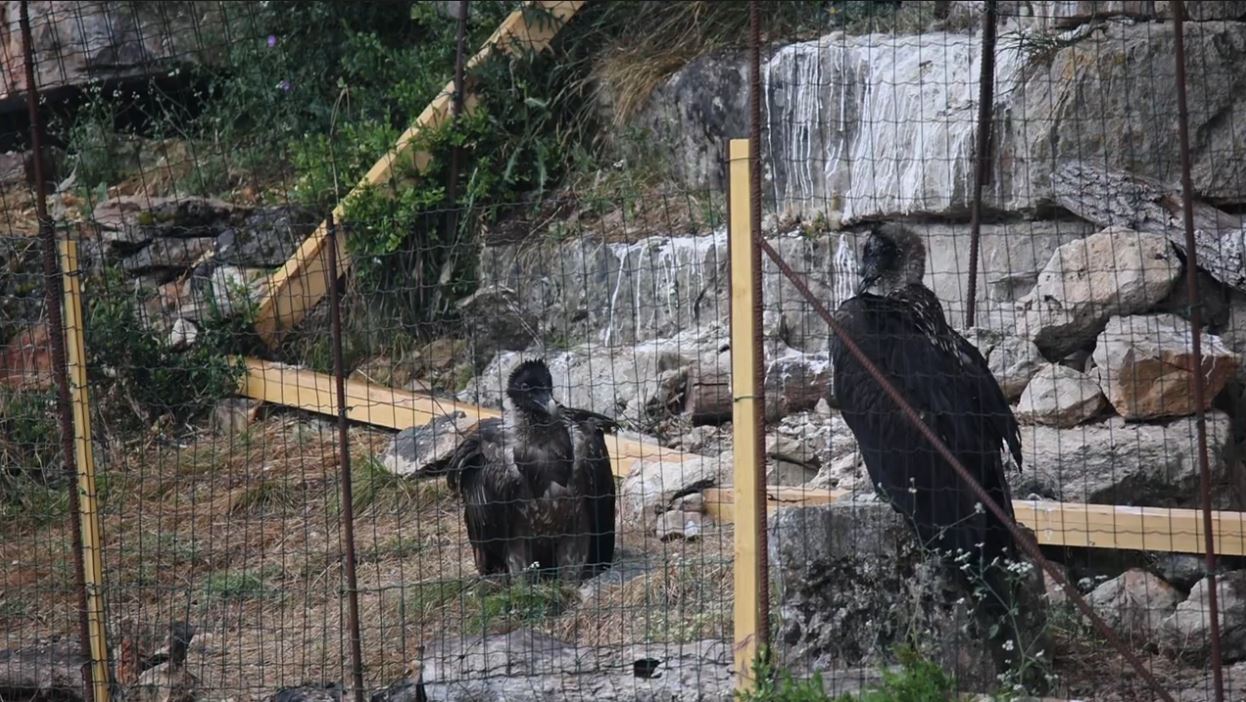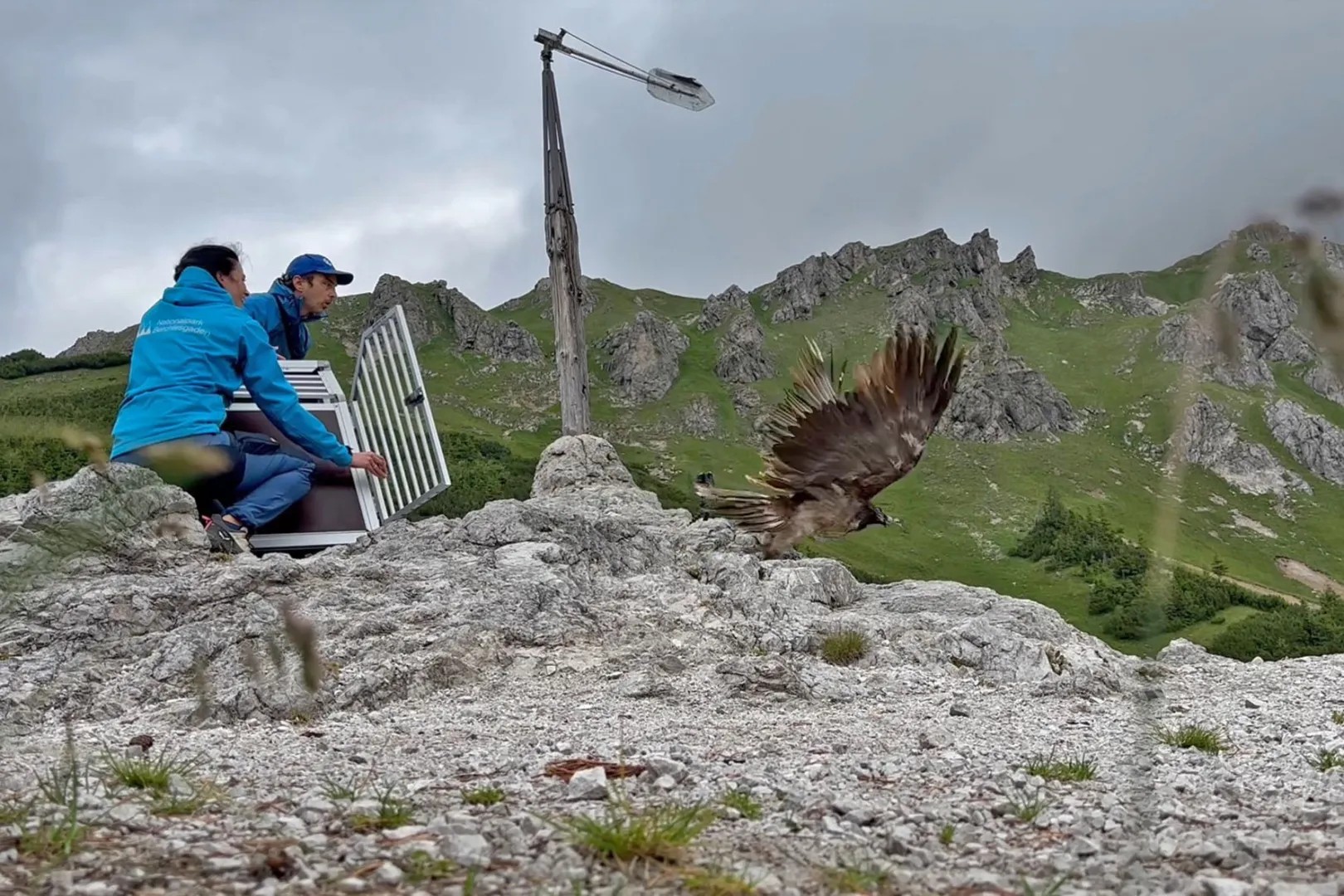
Just 40 years ago spotting a bearded vulture in the mountains of Europe was rare, but thanks to efforts by dedicated conservationists the species has had a remarkable comeback. For International Observations Day 2018 we are proud to be one of 20 organisations working across five countries and will be heading up to the mountains to help count bearded vultures for this important monitoring programme.
Bearded vultures in Europe
Two hundred years ago, bearded vultures were found in all the mountains of southern Europe, from Western Spain to the Balkans. However, due to a decrease in wild herbivores such as ibex and chamois, changes in farming practices and most important direct persecution by people based on unfounded beliefs that they predated on livestock, the population of the species crashed and by the beginning of the 20th Century had disappeared throughout most of its former range.
Bearded vultures in the Alps
The persecution of the species was particularly acute in the Alps with bounties offered for the killing of bearded vultures leading to the last individual to be shot in 1913 in the Aosta valley in Italy.
In the late 1970s the basis of an Alpine Reintroduction based on the release of captive-bred individuals started to take shape. Working with partners across Europe a captive-breeding network was established – one that we still coordinate – and the first bearded vultures were released into the wild in 1986. Eleven years later the first breeding in the Alps since the early 20th Century was recorded. Today there are around 50 breeding pairs in the Alps, around 100 pairs in the Pyrenees, 2 breeding pairs in Andalusia (also reintroduced) and small populations on Corsica and Crete.
Bearded vulture reintroduction

The success of the Alpine reintroduction programme has led to us working with partners in five different regions of Europe to restock and reintroduce this magnificent bird to areas where it has disappeared. These include the Massif Central region of France to establish a population that connects the Pyrneean and Alpine population, Andalucia and Maestrazgo regions of Spain as well as continuing the release across the Alps.
Counting bearded vultures
Since 2006 the IBM (International Bearded Vulture Monitoring) organises the International Observation Days, which is a coordinated count of bearded vultures to allow for a thorough monitoring of the population status of the species across the whole Alpine arc at first and has now expanded to include the Massif Central in France, Aude in the French Pyrenees and Andalusia, Spain.
Furthermore, the count produces many sightings of identifiable birds and generates baseline data for conservation scientists to analyise survival rates and model the age structure of the population which will help us understand the impacts of the reintroduction programmes.
Get involved

The International Observation Days are ambitious and cover five different countries and over the last 12 years could not have been achieved without the help of members of the public. This year’s simultaneous count is on Saturday 6 October 2018. All over the Alps, the Massif Central, the department Aude and Andalusia, we are inviting people to get involved, pick up a pair of binoculars, spend the day in the mountains and help us look for bearded vultures and get counting.
Through our network of organisations, there are plenty of opportunities to get involved. Please contact the regional coordinators below if you are interested in participating or contact us for any other question:
Austria
Nationalpark Hohe Tauern – ferdinand.lainer@salzburg.gv.at
France
Asters Haute-Savoie Conservatory of Natural Areas : etienne.marle@asters.asso.fr
Le Parc national du Mercantour: monique.perfus@mercantour-parcnational.fr
Parc national de la Vanoise : jerome.cavailhes@vanoise-parcnational.fr
Envergures Alpines: christian.couloumy@gmail.com
Parc naturel régional des Grands Causses: lea.giraud@lpo.fr
Parc naturel régional du Vercors: benoit.betton@pnr-vercors.fr
Vautours en Baronnies: gypaete@vautoursenbaronnies.com
Ligue pour la Protection des Oiseaux de l’Aude: yves.roullaud.aude@lpo.fr
Italy
Parco Nazionale dello Stelvio : enrico.bassi76@gmail.com
Aosta: c.chioso@regione.vda.it
Parco Naturale Alpi Marittime: fabiano.sartirana@parcoalpimarittime.it
Spain
Fundación Gypaetus: prodriguez@gypaetus.org
Switzerland
Stiftung Pro Bartgeier: franziska.loercher@swild.ch
The IBM is partially funded by their partners, and by funding contributions from the EU LIFE Fund through the LIFE GypConnect and LIFE GypHelp, as well as the MAVA foundation.





